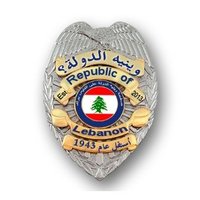
Beirut, July 4 2023; Gherbal Initiative, with the financial supportof the European Union (EU) and the Danish International Development Agency (DANIDA) and in partnership with the United Nations Development Programme (UNDP), unveiled its new report titled “Assessment of compliance of public officials with the Assets and Interests’ Declaration System: Results,Challenges and Recommendations”. The comprehensive document, announcedduring a launch event at Tournesol Theatre, sheds light on the current state ofassets and interests’ declaration by public officials, pinpoints existingchallenges, and provides critical recommendations for system improvement.
The report comes three years after the enactment of the Assets and Interests’ Declaration and Punishment of Illicit Enrichment Law no. 189/2020. This transformative law, aligned with the United Nations Convention Against Corruption, was designed to enhance anti-corruption efforts, and hold public officials accountable.
The primary objective of the report is to assess the level of compliance of public officials to Law no.189/2020, paving the way for the establishment of a robust assets andinterests’ declaration system managed by the National Anti-Corruption Commission (NACC). It aims to establish a baseline to support the NACC, civil society organizations, and the media in the law’s actual implementation.
“Gherbal continues to enshrine the right to transparency through its project, by submitting requestson information to Lebanese administrations based on the Right of Access toInformation Law, and analyzing and publishing their results, as well aspublishing the results of public tenders based on the Public Procurement Lawthrough “Mounaqasa” platform.” Assaad Thebian, Gherbal Initiative’s Executive Director.
In a rigorous assessment process, the Gherbal Initiative submitted information requests to 27 administrations, responsible for receiving the public officials’ declarations, prior to the establishment of the NACC in 2022. Of these, only 10 provided complete responses, while 9 gave incomplete answers, two outrightly refused to provide information, and six ignored the request altogether. The findings underscore the challenges and discrepancies that may impede progress towards arobust and effective declaration system.
To surmount the challenges and construct an efficient assets and interests’ declaration system, the report suggests supporting the NACC in developing a comprehensive nominal job list of all public officials required to make declarations. This could be accomplished through data exchanges with the 27 initially designated administrations. The report also emphasizes creating a cooperative mechanism between the NACC and the Central Bank to access and audit the currently stored declarations.
“The path towards a corruption-free society is both long and challenging, but we are making strides in the right direction. With the invaluable support of our partners, the EU and DANIDA, we are empowering civil society organizations like Gherbal Initiative. These organizations are pivotal in implementing anti-corruption laws and restoring public trust. At the end, the goal is not in just creating new laws or buildinginstitutions but ensuring these institutions can effectively enforce laws and bring perpetrators to justice. This is the commitment we owe to the people of Lebanon.” Melanie Hauenstein, UNDP Resident Representative.
In line with the National Digital Transformation Strategy, the process of building a dynamic NACC website has been initiated by UNDP, allowing public officials to submit their declarations online. Additionally, UNDP is collaborating with the Government to adopt e-signatures, a critical component of the electronic declaration system.
“The National Anti-Corruption Commission NACC plays avital role in receiving and managing assets and interests’ declarations. To fight corruption effectively, we need the NACC to be fully operational, with its bylaws approved and with a proper budget to carry out its mandate. The European Union remains committed to supporting anti-corruption measures in Lebanon. Civil society organizations are key partners in this journey, and their involvement will expedite Lebanon’s recovery from within.” Ms. Alessandra Viezzer, Head of Cooperation at the EU Delegation.
This activity comes within the framework of the ongoing cooperation between Gherbal Initiative and the United Nations Development Programme with the support of the European Union and the Government of the Kingdom of Denmark. This cooperation aims at preventing and fighting corruption by supporting the effective implementation of the National Anti-Corruption Strategy (NACS) and related Anti-Corruption laws and activating and strengthening the role of civil society in terms ofaccountability.
UNDP is working in Lebanon since 1986 as a development partner supporting economic recovery, including working with municipalities to deliver basic services to host communities, promoting clean energy and solid waste management, strengthening governance and rule of law, providing support to elections, and working on empowering womenand youth.
The full report, in additionto the guide to the assets and interests’ declaration and the punishment ofillicit enrichment law, can be downloaded using this link.
